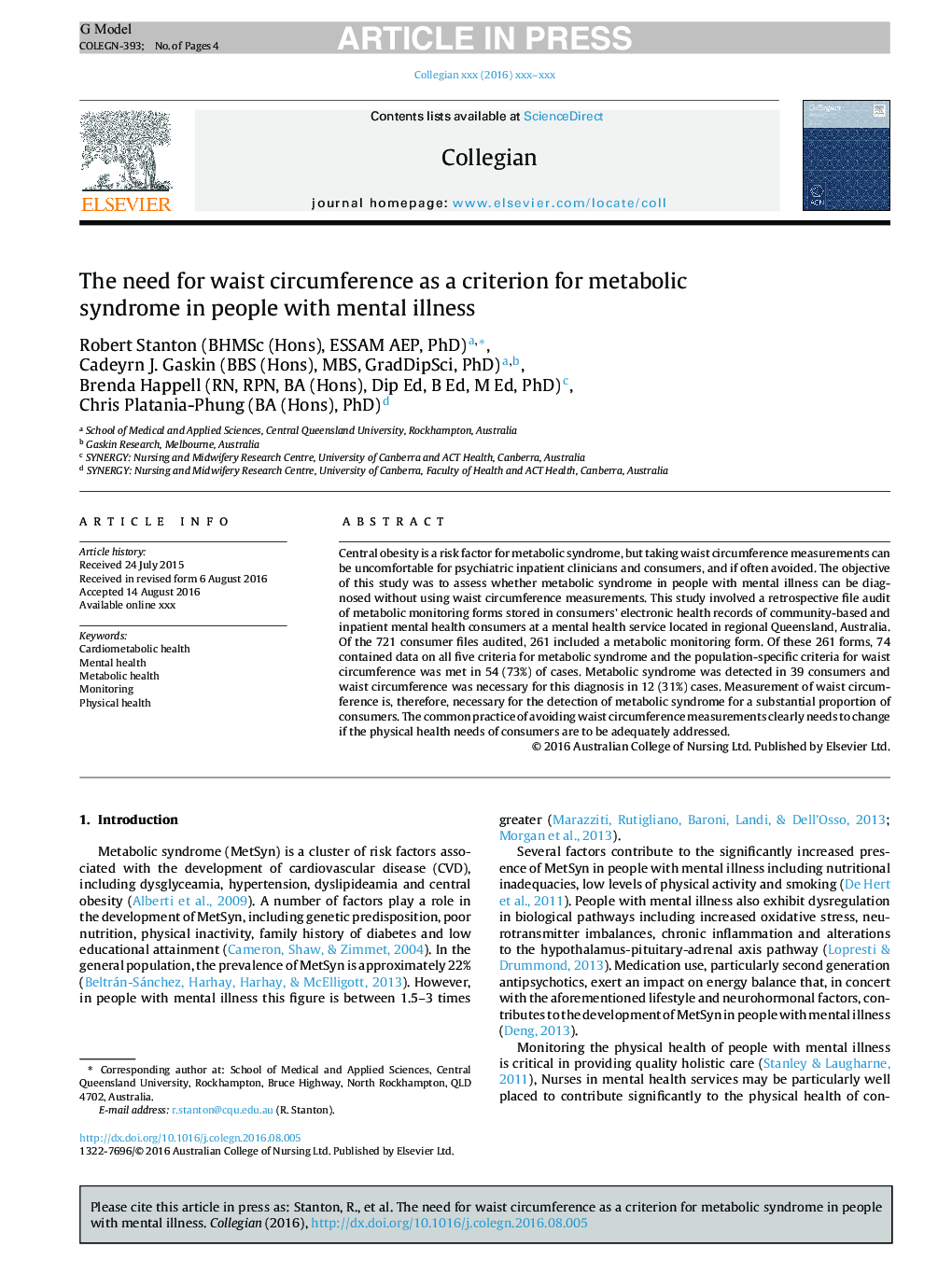| Article ID | Journal | Published Year | Pages | File Type |
|---|---|---|---|---|
| 5567691 | Collegian | 2017 | 4 Pages |
Abstract
Central obesity is a risk factor for metabolic syndrome, but taking waist circumference measurements can be uncomfortable for psychiatric inpatient clinicians and consumers, and if often avoided. The objective of this study was to assess whether metabolic syndrome in people with mental illness can be diagnosed without using waist circumference measurements. This study involved a retrospective file audit of metabolic monitoring forms stored in consumers' electronic health records of community-based and inpatient mental health consumers at a mental health service located in regional Queensland, Australia. Of the 721 consumer files audited, 261 included a metabolic monitoring form. Of these 261 forms, 74 contained data on all five criteria for metabolic syndrome and the population-specific criteria for waist circumference was met in 54 (73%) of cases. Metabolic syndrome was detected in 39 consumers and waist circumference was necessary for this diagnosis in 12 (31%) cases. Measurement of waist circumference is, therefore, necessary for the detection of metabolic syndrome for a substantial proportion of consumers. The common practice of avoiding waist circumference measurements clearly needs to change if the physical health needs of consumers are to be adequately addressed.
Related Topics
Health Sciences
Medicine and Dentistry
Public Health and Health Policy
Authors
Robert BHMSc (Hons), ESSAM AEP, PhD, Cadeyrn J. BBS (Hons), MBS, GradDipSci, PhD, Brenda RN, RPN, BA (Hons), Dip Ed, B Ed, M Ed, PhD, Chris BA (Hons), PhD,
